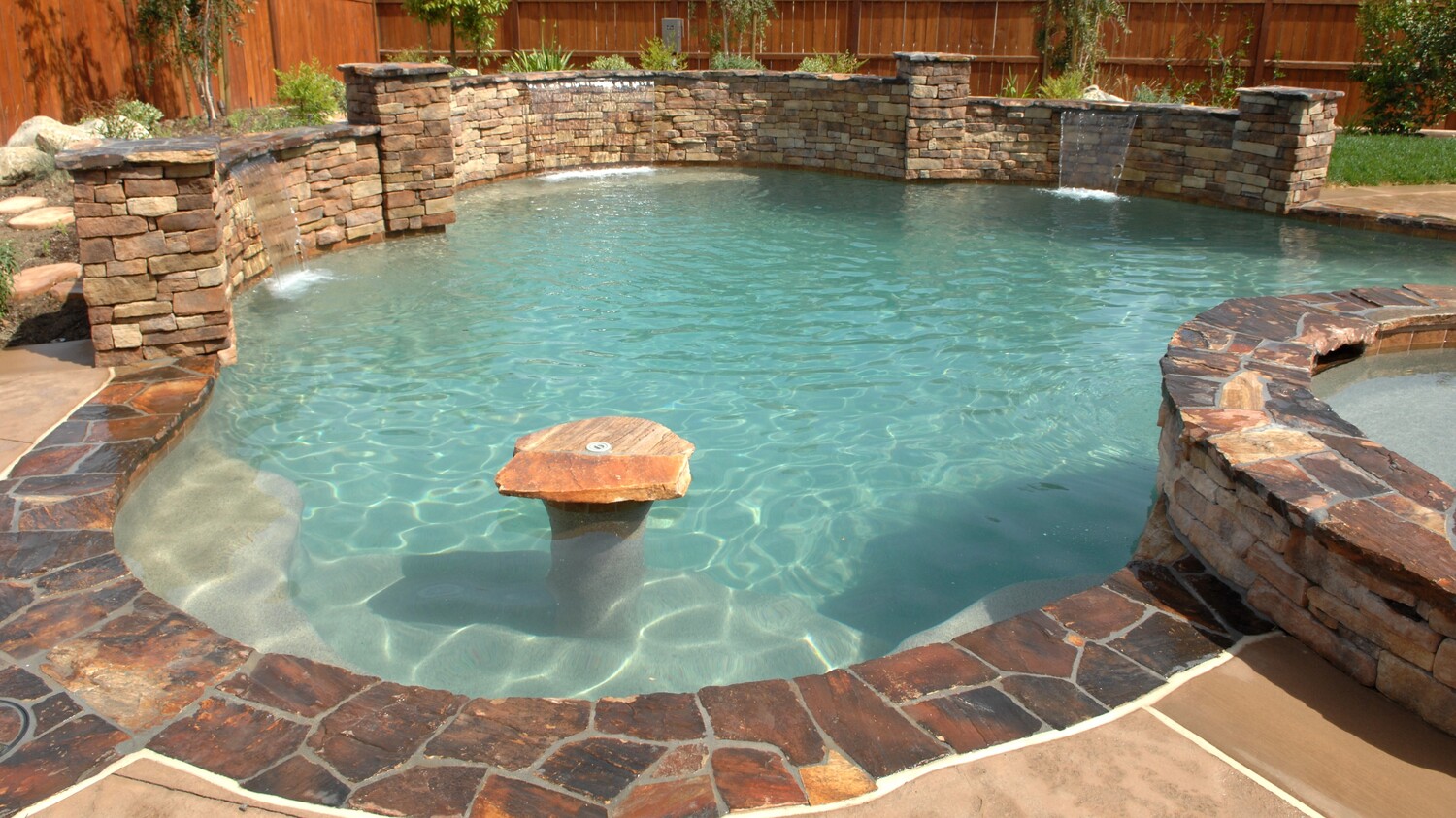TURNING OUTDOOR DREAMS INTO REALITY SINCE 2005



While each project is unique, we have assembled this FAQ to review the questions we receive on a regular basis. Installing a pool or making other changes to enhance your outdoor living space can be one of the biggest decisions a homeowner can make. We are here to make the process as easy and comfortable as possible.
Used as a placeholder to force 1st accordion closed by default.
When it comes to pool design, there are several styles to choose from, each offering unique aesthetics and features. Here are some popular pool styles:
Contemporary Pool: This timeless style features a simple shape with clean lines and symmetrical proportions. It’s a popular choice for its versatility and timeless appeal, suitable for both modern and traditional settings.
Tropical Pool: these pools incorporate curves, flowing lines, and naturalistic features such as rock formations, waterfalls, and lush landscaping. Tropical pools create a relaxed, tropical ambiance and are ideal for creating a backyard oasis.
Flagstone Pool: Whether you prefer a rustic, natural look or a more modern and sleek design, a Flagstone pool can enhance the final vision of any pool. Through the process of hand selecting the flagstone, it is not just a pool, but a work of art. Flagstone serves both as a naturally slip resistant and heat reducing decking surface for your pool enjoyment.
Freeform Pool: Freeform pools have irregular, organic shapes that mimic natural bodies of water like ponds or lagoons. Like Tropical pools, they often incorporate naturalistic features such as rock formations, waterfalls, and lush landscaping.
Geometric Pool: Geometric pools feature angular shapes such as squares, rectangles, triangles, or combinations thereof. They offer a modern and minimalist aesthetic, with crisp lines and precise symmetry. Geometric pools can be customized with features like vanishing edges, raised spas, and integrated water features to enhance their visual appeal.
Infinity or Vanishing Edge Pool: Infinity pools create the illusion of water extending to the horizon, blending seamlessly with the surrounding landscape. They feature an edge where the water spills over into a catch basin below, creating a striking visual effect. Infinity pools are often built on properties with scenic views to maximize their impact.
Therapy/Lap Pool: Therapy/Lap pools are generally long, narrow pools designed primarily for swimming laps and exercise. They typically have a rectangular shape and a straight, uninterrupted swimming lane. Therapy/Lap pools are ideal for compact or narrow spaces and cater to fitness-oriented homeowners.
Play Pool: Play pools are shallow pools designed for recreation and family fun. They often feature gradual slopes, built-in benches, and shallow wading areas suitable for children and adults alike. Play pools may include water features like fountains, bubblers, and splash pads to enhance the entertainment value.
These are just a few examples of pool styles available, and each can be customized to suit your preferences, lifestyle, and budget. Whether you prefer a sleek modern design, a tranquil oasis, or a family-friendly play space, there’s a pool style to match your vision.
The time it takes to construct a pool and spa from start to finish also varies depending on factors like the type and size of the pool, site preparation requirements, local regulations, and weather conditions. Actual Building time which excludes the permit process usually takes anywhere from a 8 weeks to 16 weeks to complete the construction process. The permit process can be as little as a couple of weeks or as much as 6 months depending on the individual city/county agencies.
The cost of building a pool can vary widely depending on factors such as the type of pool, size, location, site preparation, additional features (like lighting, decking, landscaping), and labor costs. On average, you can expect to pay anywhere from $40,000 to $150,000 or more for a pool, including installation, equipment, decking and additional features, ie: water features, fire pits , BBQ and patio covers
Ongoing maintenance expenses include chemicals, water testing kits, cleaning tools (such as brushes, skimmers, and vacuums), energy costs for running equipment, and periodic servicing or repairs. Monthly maintenance costs can range from $50 to $150 or more, depending on factors like pool size, usage, and location.
Yes, you can customize the design of your pool to suit your preferences and needs. Some options for customization include the shape, size, depth, materials, finishes, lighting, water features (such as waterfalls or fountains), and landscaping around the pool area.
All permit fees and taxes should be included in the swimming pool contract. Before building a pool, you’ll need to obtain the necessary permits and comply with local regulations. These may include permits for construction, zoning regulations, fencing requirements, safety codes, and environmental regulations. It’s essential to check with your local authorities or a professional pool builder to ensure you’re meeting all the necessary requirements.
The best way to maintain a pool is through regular cleaning, chemical balancing, and proper equipment maintenance. This includes tasks like skimming debris, vacuuming, brushing the walls, checking and adjusting chemical levels, and servicing the pump and filter regularly. Monthly expenses for pool maintenance can vary depending on factors like pool size, location, and usage but typically range from $50 to $150 or more.
The lifespan of a pool can vary depending on factors like the type of pool, materials used, quality of construction, and maintenance practices. In general, well-maintained pools can last for several decades. However, over time, you may need to invest in repairs or renovations such as resurfacing, replacing pool filtration equipment, or repairing leaks. Regular maintenance and prompt repairs can help extend the lifespan of your pool.
TURNING OUTDOOR DREAMS INTO REALITY SINCE 2005
